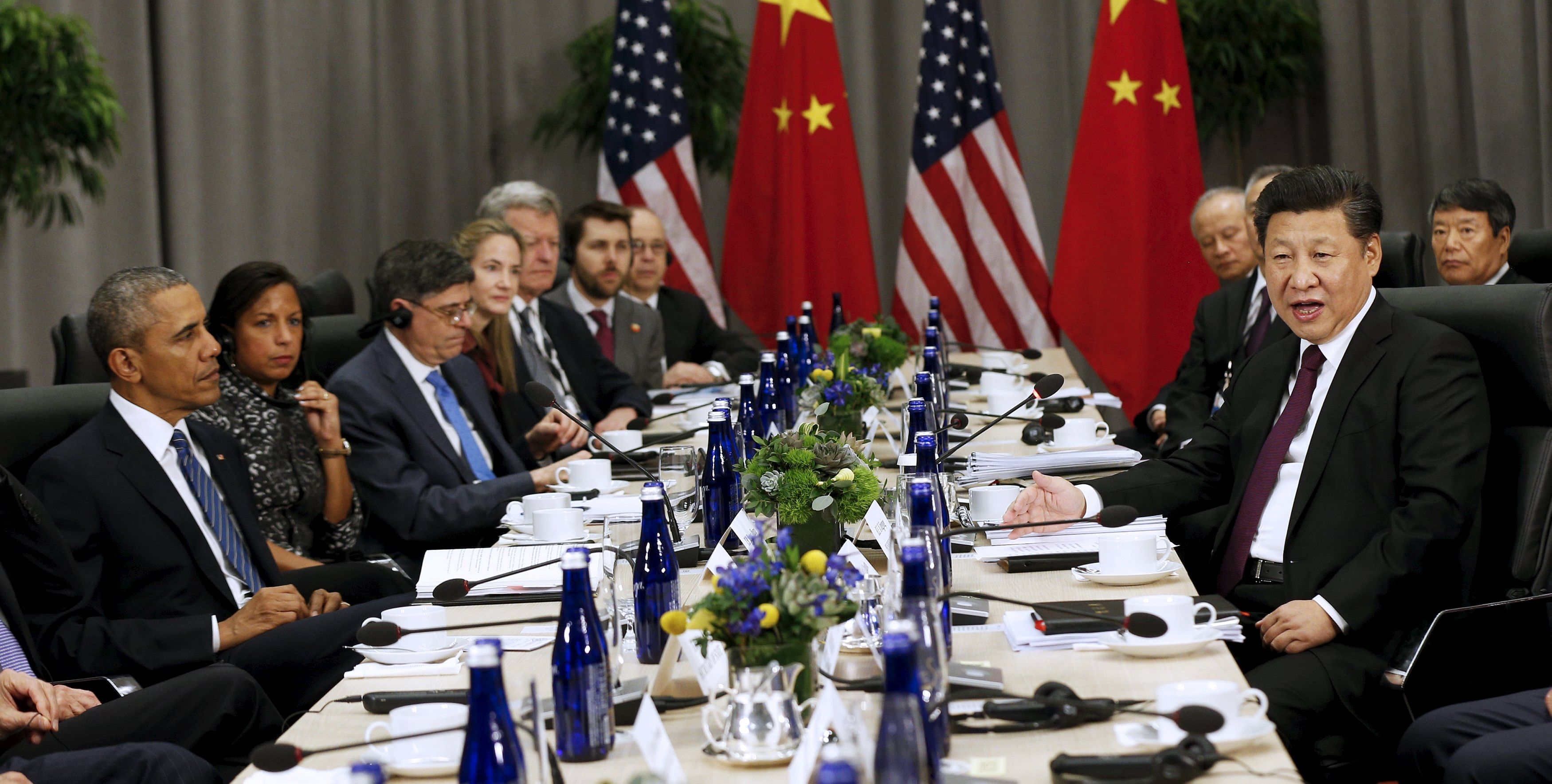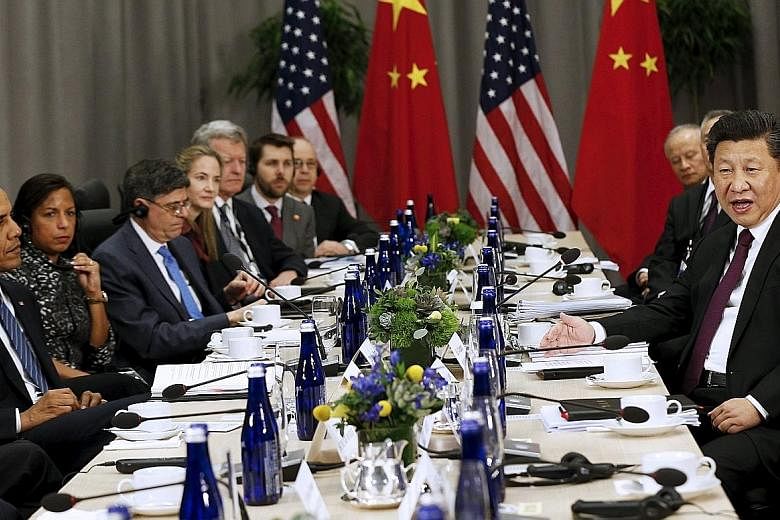Prime Minister Lee Hsien Loong joined leaders from more than 50 countries in the US Capitol for a summit aimed at dealing with the threat of nuclear weapons.
But hours before the meeting took place yesterday, North Korea fired a missile into the sea off its east coast. South Korea's Yonhap news agency said the test appeared to involve a ballistic missile.
It took place just hours after leaders from the United States, South Korea and Japan held a trilateral summit in Washington, at which they vowed to ramp up pressure on North Korea in response to its recent nuclear and missile tests.
US President Barack Obama, South Korea's President Park Geun Hye and Japan's Prime Minister Shinzo Abe recommitted their countries to each other's defence and warned they could take further steps to counter threats from Pyongyang.
Mr Obama on Thursday also hosted leaders attending the nuclear summit to a working dinner at the White House. This will be the final summit in a series of four that was initiated by Mr Obama in 2010.

PM Lee has attended every Nuclear Security Summit, in a sign of Singapore's commitment to global nuclear security.
At the end of the meetings, the leaders are expected to release a joint communique outlining steps forward and issue action plans for relevant agencies like the United Nations, International Atomic Energy Agency and Interpol.
This year's summit is taking place against the backdrop of an increasingly belligerent North Korean regime and the heightened threat of nuclear terrorism.
In the aftermath of the deadly terror attacks in Belgium, new concerns were raised that militant group Islamic State in Iraq and Syria was planning attacks on the country's nuclear installations. It emerged after the attacks that there have been troubling breaches at Belgium's two nuclear plants. For instance, two workers quit in 2012 to join the fighting in Syria.
Despite the global threats, experts have low expectations for this year's meeting, especially given the Russian boycott.
Russia - which possesses one of the largest nuclear stockpiles in the world - decided to sit out the summit, citing a lack of mutual cooperation in working out the agenda.
US officials stressed that Moscow's absence would not unduly impact the summit.
"Russia's decision to not participate... we believe is a missed opportunity for Russia above all. They have benefited enormously from cooperation on nuclear security and non-proliferation in the past," said White House Deputy National Security Adviser Ben Rhodes. "All they are doing is isolating themselves in not participating as they have in the past."
PM Lee on Thursday met US Federal Reserve chair Janet Yellen and Trade Representative Michael Froman. They exchanged views on the global economy and on the prospects of the Trans-Pacific Partnership free trade pact.

